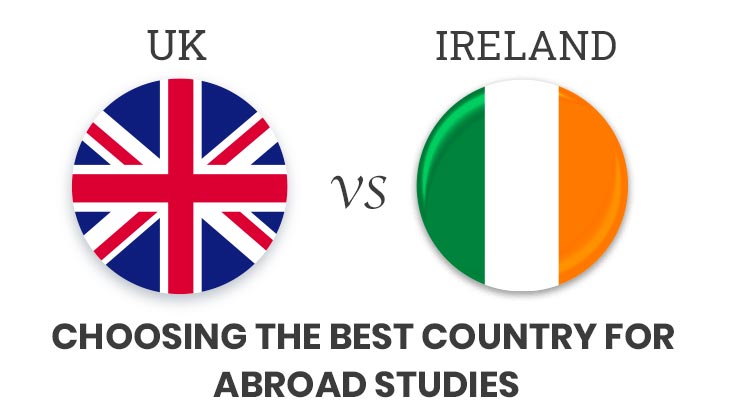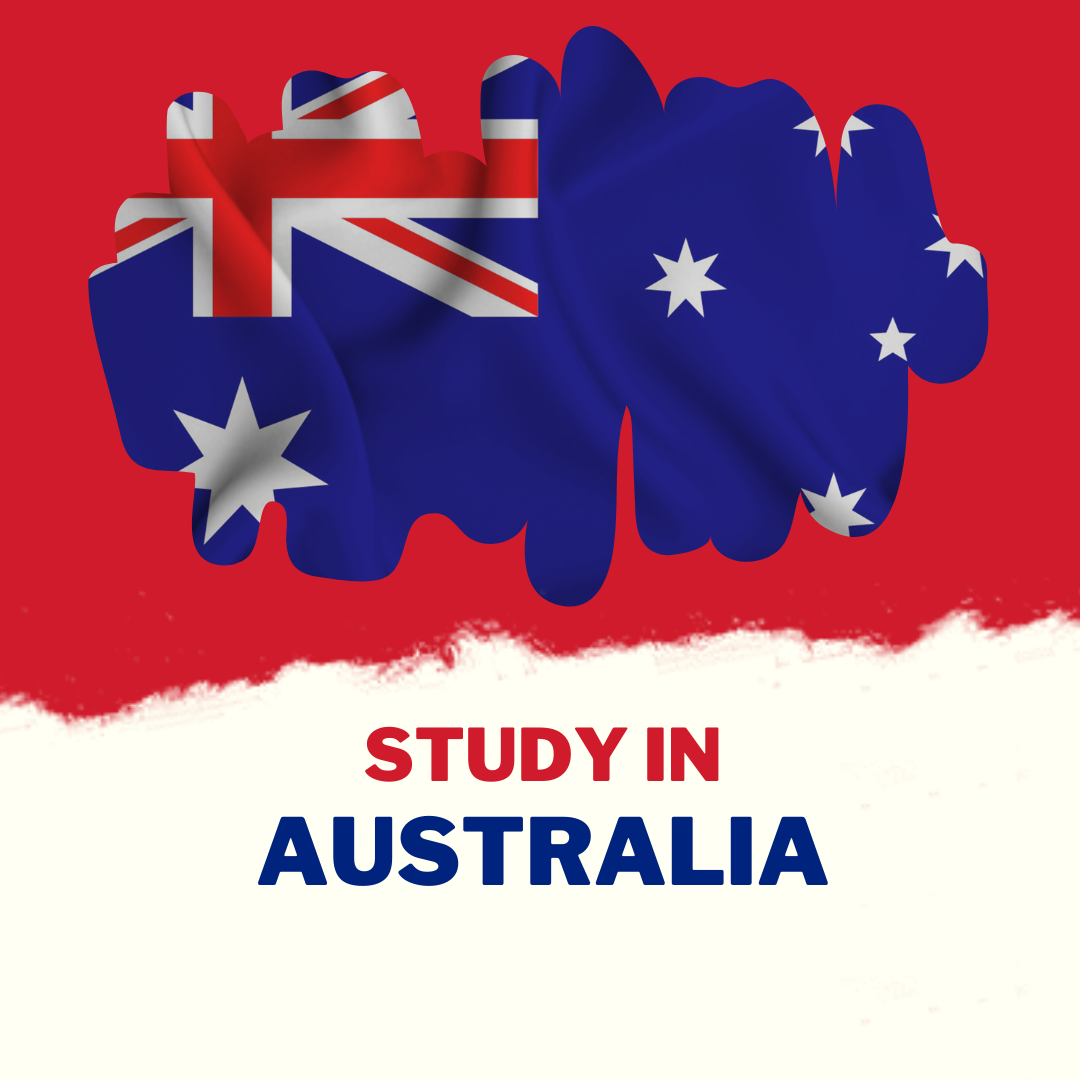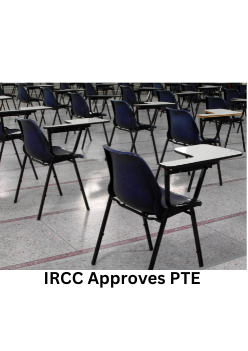The UK and Ireland, 2 countries with a shared history, geographical proximity, and cultural similarities, have both been established as top Study Abroad destinations – each is home to excellent universities and offer international students all the benefits of an overseas experience. To do this you will have to know many things before you step into another country. To help you the Hurray Overseas Education Consultants have put together, a series of commonly enquired questions.
In this blog post, we will break down and compare the two countries, based on some of the main concerns students will consider when choosing a Study Abroad destination. In having all the information in one place, you will be equipped to make the decision that works best for you!
Top universities
UK: The UK is home to some of the oldest and most prestigious universities in the world, with its university system influencing several the world over. Some of its top universities for international students include University College London, ranked 8th worldwide, the University of Edinburgh, ranked 20th, the University of Manchester, ranked 27th, King’s College London, ranked 33rd, and the University of Warwick, ranked 62nd.
Ireland: Ireland’s universities too have achieved an excellent reputation, attracting students from all over the world – Trinity College Dublin, ranked 108th globally, is its oldest and most prestigious; followed closely by University College Dublin, National University of Ireland Galway, and University College Cork, all ranked in the top 1-2% universities in the world.
To learn more about each of these universities, check out our blog posts: Top 5 Universities for International Students: the UK and Top 5 Universities for International Students: Ireland.
Top subjects
The following are the most popular subjects for which international students seek to Study Abroad in the UK and Ireland.
UK: The subjects that are in greatest demand among international students include Business (i.e. MBA), Natural Sciences (particularly Biological sciences), Engineering, Medicine (particularly dentistry, pharmacy and nursing), and the Social Sciences (particularly Psychology).
Ireland: The subjects that are in greatest demand among international students include Finance, Computer Science, Digital Marketing, Biotechnology and Business and Management.
Admissions
Universities in both the UK and in Ireland have competitive entry, and the minimum requirements are high. The requirements of universities in both countries follow a similar pattern.
UK: Indian 3-year Bachelor’s degrees (i.e. BA, BSc, BCom) are accepted by most UK universities. It must be the equivalent of either a UK First Class i.e. with an overall percentage of 75%, or of a UK 2:1 i.e. with an overall percentage of 65%, with the required score depending on the programme. In certain cases, the equivalency of the Indian Bachelors might depend on which is the awarding institution.
Ireland: Like in the UK, Indian 3-year Bachelor’s degrees are accepted, and must be the equivalent of either an Irish First Class i.e. with an overall percentage of 75%, or an Irish 2:1 i.e. with an overall percentage of 65%, with the required score depending on the programme.
Both the UK and Ireland require international candidates to submit proof of English language proficiency. The preferred test by both countries is IELTS, with the minimum average score usually set at 6.5, with individual band scores of at least 6.0.
Cost of Study
UK: UK tuition fees are generally considered to be among the world’s highest for overseas education. The tuition for a Master’s programme falls within a broad range from 18000-35000 GBP, varying as per factors such as the subject of the study or the university. At the current rate of conversion, this would amount to about 17 -33,00,000 INR.
In terms of cost of living, as per Student Visa indications, living in London, one of the UK’s most expensive locations, would cost about 11000-12500 GBP for one academic year (i.e. 9 months). This amounts to approximately 10-12,00,000 INR (at current rates).
Ireland: Tuition fees for a Master’s programme ranges from 13000-30000 Euros per annum, again, varying as per factors such as the subject of the study or the university. At the current rate of conversion, this would amount to about 13-23,00,000 INR.
Again, as per Student Visa stipulation, the cost of living ranges between 7000-15000 Euros per annum, with costs outside of the capital city of Dublin usually averaging lower. This amounts to approximately 5-12,00,000 INR (at current rates).
On the whole, the cost of study and living in the Ireland falls lower than the same in the UK.
Duration of course and Semester system
UK: A Taught Masters programme is typically of 1 year’s duration.
UK universities have 2 major terms i.e. Term 1 which commences in September, and Term 2 which commences in January. Certain universities may have an addition Summer term of shorter duration, which commences in April.
Ireland: A Master’s programme is typically of 1-2 years’ duration.
The semester system is similar to that in the UK, where the 1st or Autumn semester commences in September, and the 2nd or Winter semester commences in January.
Credit and Grading system
UK: In the UK, taught Masters degrees in the UK are usually worth 180 credits, split between a number of modules, which vary between 10 and 30 credits each. The grade for an individual module is based upon the weighting of, and the grades achieved in, the module’s assessments.
Masters programmes employ the following grading system.
|
Distinction |
70%+ |
|
Merit / Commendation |
60-69% |
|
Pass |
50-59% |
|
Borderline Pass / Fail |
40-49% |
Ireland: Several universities in Ireland follow the European ECTS system for awarding credits. A Master’s programme is typically worth 90-120 credits, depending on whether the duration of the programme is 1-2 years.
The grading system followed in Ireland is either the Trinity scheme, which is similar to the UK system, or the ECTS system which involves letter grades.
Work while studying
Both countries allow international students to work during the duration of their academic programmes, subject to certain regulations and criteria.
UK: International students on a Tier 4 Student Visa are automatically permitted to work up to 20 hours a week during the term, and full-time during the holidays. The types of work permitted include work on the university campus/for a university-affiliated employer, such as a teaching/research assistantship. Other types of work, such as for a corporate sector employer are also permitted, though subject to certain criteria, depending on the programme of study.
Ireland: International students from outside the EEA, require a Stamp 2 permission on their Student Visa, in order to be permitted to work up to 20 hours a week during the semester, and up to 40 hours a week during the designated holiday period i.e. June-September and 15 December to 15 January. However, students with Stamp 2A are not permitted to work.
Post-study work opportunities
UK: From 2012 onwards, the UK had imposed strict regulations on international students seeking to stay back in the country to look for work, with a limited allowance of 4 months’ duration, as well as a cap on the number of visas awarded. However, for students who enrol in 2020-2021 onwards, the regulations are set to be loosened considerably – with the UK government’s announcement of a new Graduate Route, allowing international students who graduate with an undergraduate degree or higher to remain in the UK for 2 years, with opportunities to stay on longer upon finding suitable employment. The new regulations are slated to increase the UK’s popularity as a Study Abroad destination.
Ireland: Ireland already has regulations in place allowing international students to stay back post-graduation. Within 6 months of graduation, a non-EEA international student can apply for the Irish Third Level Graduate Scheme which permits them to remain in Ireland for a period of 24 months after the successful completion of a programme to work full-time i.e. 40 hours a week, or to apply for a work permit to remain in the country post-expiry of the scheme.
As you have probably noted, each country has its benefits as a Study Abroad destination – the UK is home to several top-ranked institutions, while Ireland offers lower overall costs; within the next 2 years, both countries will be on par in offering post-graduation work opportunities to international students.
If you’re confused – worry not! The Hurray Overseas Education counselling team is ready to work with you, helping you to choose the country, university, programme, and so on, that works best for you and your career goals. To book your one-on-one appointment with us, reach out via email:overseaseducation@hurrayeductech.com or phone: 8971357928, for more details. You can learn more about these countries by reading Study In Ireland Blogs and Study In Uk Blogs Make the right decision today.











Post Comments